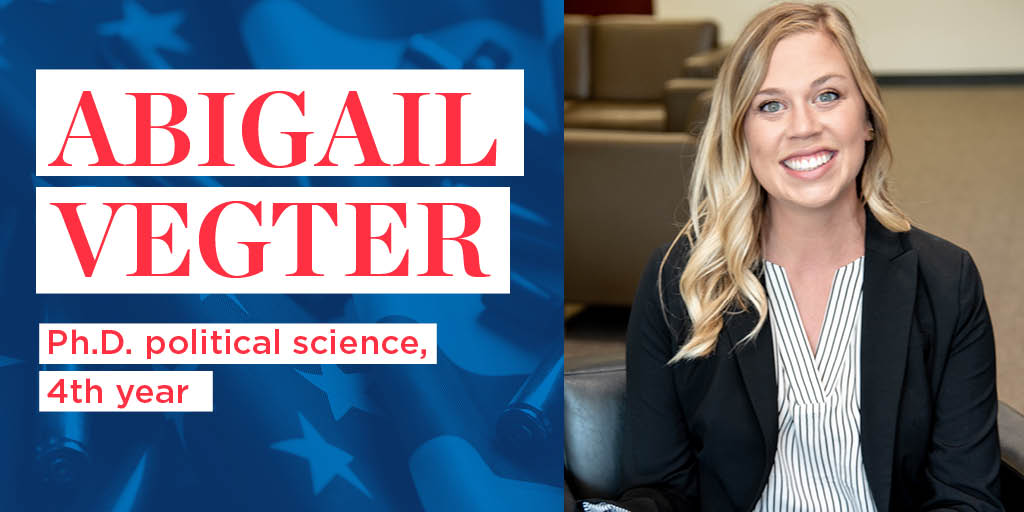
Religion and politics in America can be messy, divisive, and contentious, certainly. But, as Abigail Vegter points out, the topics are anything but boring. In her doctoral research in KU’s Political Science program, Abigail is looking at the overlapping issues of gun policy and religious and political beliefs in the United States. More specifically, she’s investigating the impact of religion on policies and attitudes about firearms, subjects she developed an interest in working with KU faculty who encouraged her curiosity. “As my faculty mentor aptly put it, ‘I caught the research bug,’” she said.
So in moments as tumultuous, hyper-partisan, and volatile as our current era, how are these complex and controversial issues influencing one another? What should we expect from these intersections? And how might the COVID-19 pandemic affect the political and religious landscape? We talked with Abigail about these issues and more.
What are your research interests and why did you choose them?
My scholarship focuses broadly on religion and politics, with a specific attention given to how religion impacts gun attitudes and gun policy in the United States. I have always had an interest in the relationship between religion and politics. I went to religious schools growing up, yet the way I understood the relationship between faith and politics differed significantly from that of my teachers and classmates. My goals were solidified when I was a senior in high school. It was 2012 and I was sitting in an American Government class listening to how my classmates vocalized their political views and how it was rarely separated from their religious views. I wanted to better understand how these two features of identity interreacted with one another.
When I began my undergraduate education, I was able to participate in a research lab. It was there I was exposed to the impact that social science research can have on the world. I learned to love the process of research, from the initial development of meaningful research questions to the collection of data to the dissemination of findings. As my faculty mentor aptly put it, ‘I caught the research bug.’ When I arrived at KU, I was exposed to the gun politics work of my advisor Dr. Donald Haider-Markel and his colleagues. I saw clearly how my interest in religion and politics fit into this research agenda and I have been pursuing this avenue ever since. I can say studying politics, guns, and religion never gets boring!
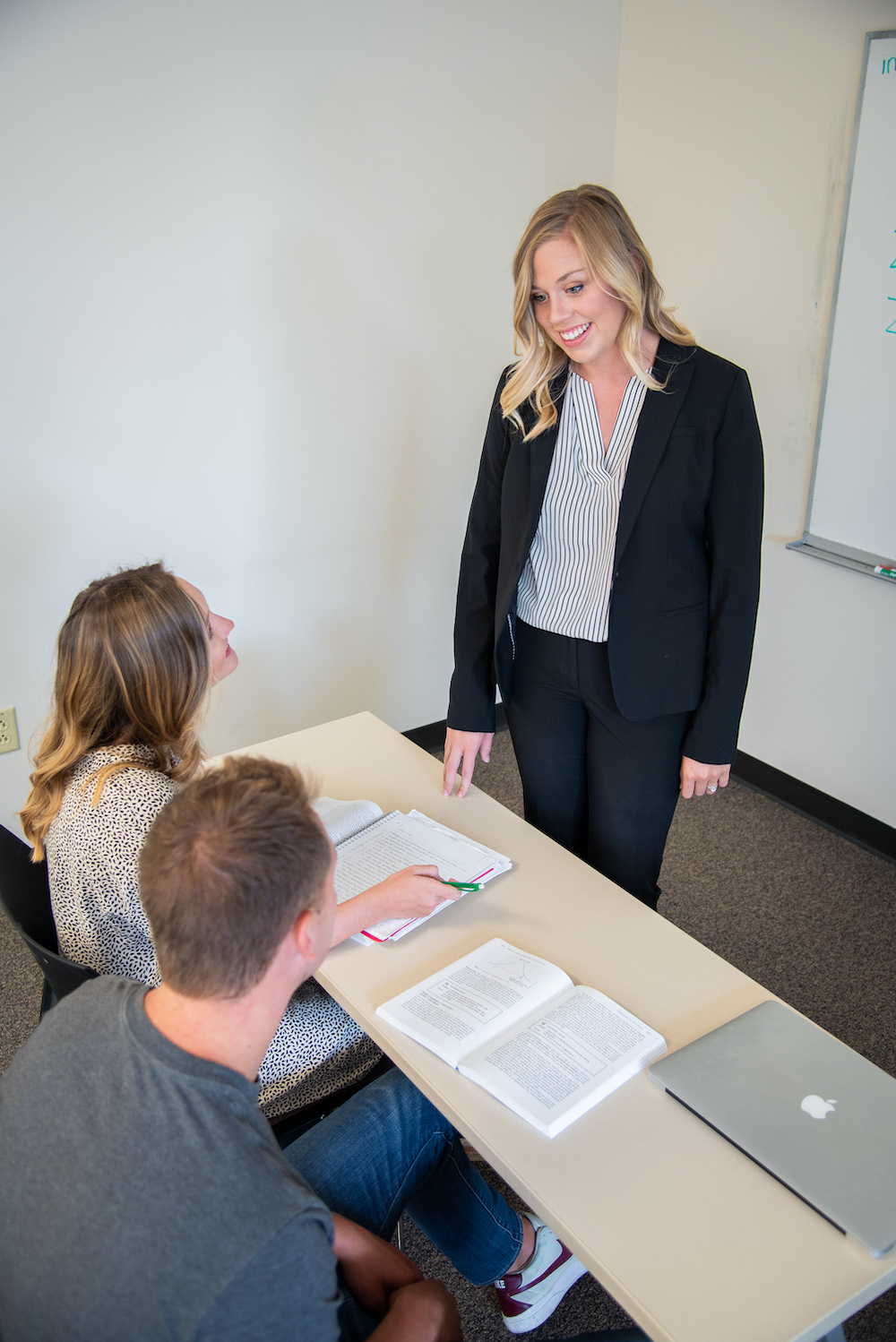
Tell us what your PhD thesis is in under 200 characters:
My doctoral dissertation uses diverse methods to examine the intersecting identities of religion and gun ownership and the subsequent effects on policy preferences and the policy process itself.
What is one thing you think everyone should know about your research project or research interests?
Religious individuals are far less monolithic than people tend to believe. While it is undoubtedly helpful to look at them as a group, through both my quantitative and qualitative research, it is clear to me that there is more diversity among religious populations than assumed. Understanding the nuances of religion’s impact on politics is one of the driving forces of my scholarship.
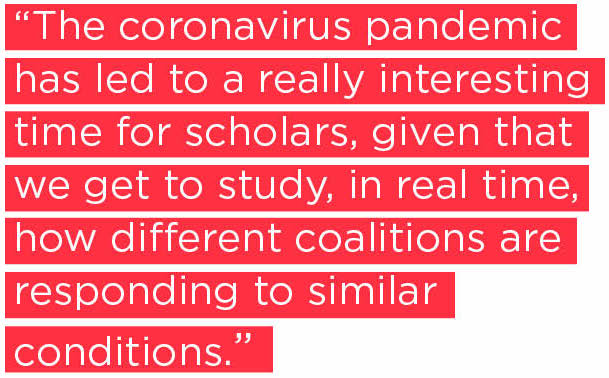
What have you found to be unusual or noteworthy about the role of religion in the political landscape in the time of the COVID-19 pandemic?
The coronavirus pandemic has led to a really interesting time for scholars, given that we get to study, in real time, how different coalitions are responding to similar conditions. Religious attitudes and behavior have motivated some of these responses. I have had the opportunity to explore specifically how the global pandemic matters for guns and religion, as churches and gun stores have both shut down and fought hard to remain open. Individuals, activists, politicians, and pastors alike are claiming serious threats to first and second amendment rights. Conversely, religious individuals and organizations who support restrictions often do so for religious reasons. I continue to work with an exceptional group of scholars nationwide who are seeking to capture religious responses to the pandemic and how COVID-19 will shape religion in the United States for years to come.
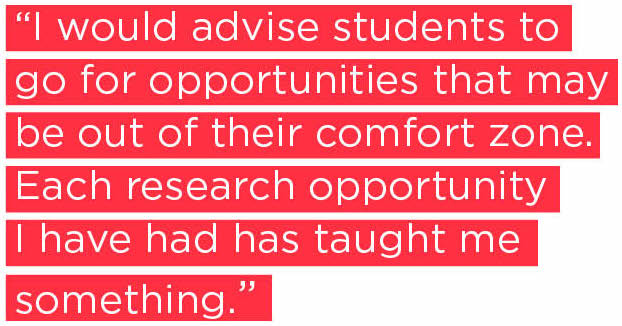
What advice would you give students applying for research funding opportunities?
I would advise students to go for opportunities that may be out of their comfort zone. Each research opportunity I have had has taught me something, even if it was related to a topic that I no longer explore. My first ever research job was my freshman year of undergrad. I was tasked with entering and cleaning data pertaining to charter school performance. I have never since pursued any research related to charter schools, but the experience was invaluable as it taught me the basics of empirical research and opened up so many other doors. Likewise, I never thought I would be studying gun politics, but saying “yes” to a project that first year of my PhD has led to multiple publications and a research avenue that I’m truly passionate about.
Give a shout-out to a professor, mentor, advisor, or someone at KU who has helped you?
I have to thank my advisor, Dr. Donald Haider-Markel, for opening up so many doors for me. He consistently chooses to elevate his students above himself. I have the confidence needed to pursue this career because he has trusted my abilities and provided me with so many research opportunities. I owe a lot to that trust. Additionally, I am extremely grateful for the culture among KU graduate students. It’s uncommon to feel so supported by those this career wants you to see as competitors.
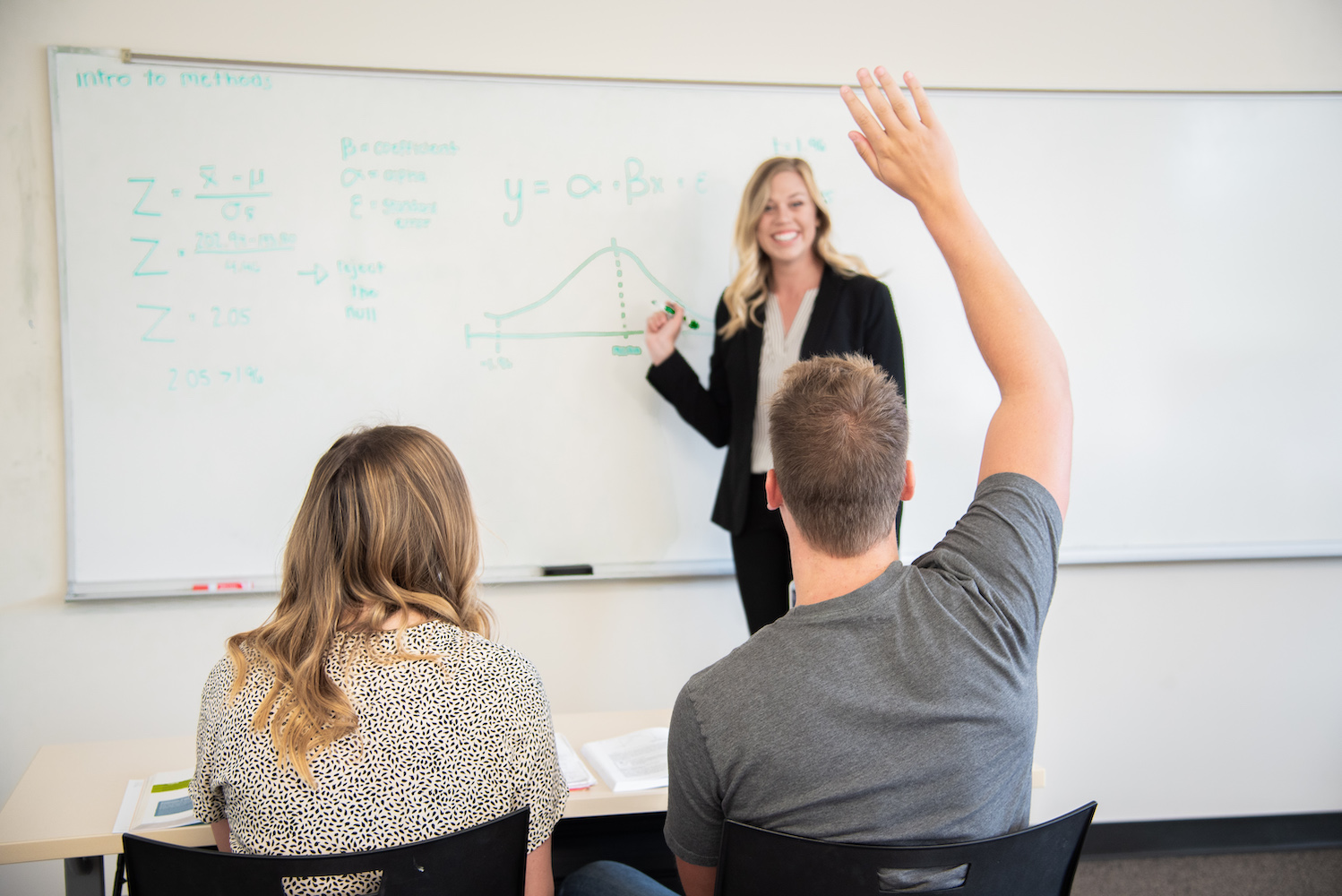
What is the most valuable experience you have had while studying at KU?
In the first month of my second year, Dr. Haider-Markel sent me to Boston to present a paper we were working on at the biggest political science conference in the country. The fact that he trusted me to do well in that high-pressure environment meant a lot for my confidence. I went alone to Boston, delivered the presentation, and received positive feedback. That weekend, I talked to NPR, the Washington Times, and other major news sources about our work. Self-doubt is something that a lot of graduate students and young scholars struggle with but being sent on this trip by people who knew my capabilities and knew I would do well (and living up to their expectations) was one of the most valuable experiences of my time at KU.

What do you plan to do after you graduate from KU?
I hope to secure a tenure-track position as a political science professor.
What motivates you?
I am motivated by my goal to produce scholarship that matters and to make proud the many people who have poured into me. I hope to achieve success in a way that allows me to lift up others that come after me.
Meet more of our students. For more information, explore the Department of Political Science at the University of Kansas.